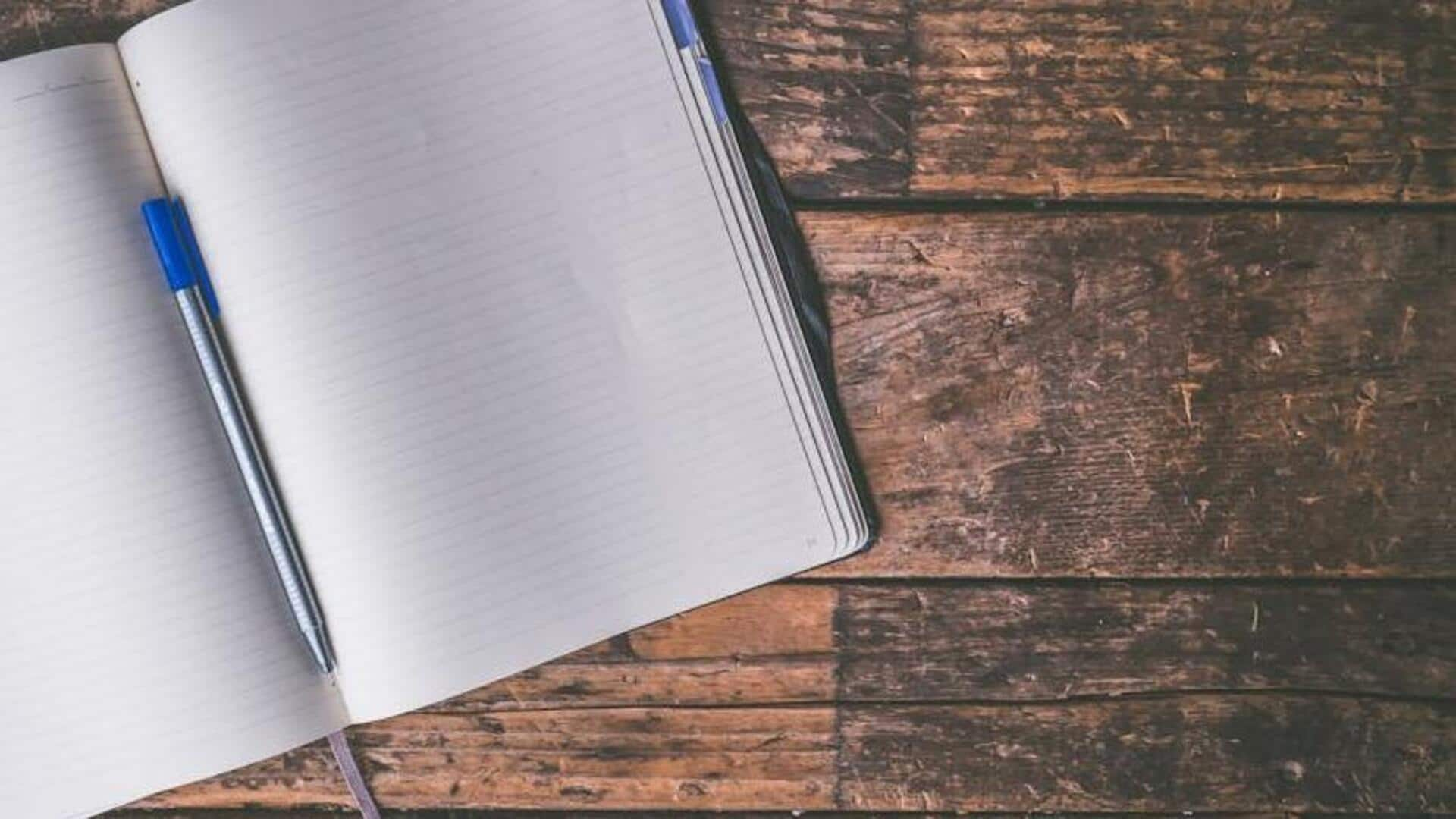
Habits to improve sleep with journaling
What's the story
Improving sleep quality is crucial for maintaining physical and mental health. Journaling before bed is an effective strategy to enhance sleep. This simple activity can calm the mind, organize thoughts, and create a positive environment for rest. In this article, we discuss five journaling habits designed to significantly improve your sleep pattern, making rest more peaceful and rejuvenating.
Routine
Establish a nightly routine
Establishing a nightly journaling routine signals your body it's time to wind down. Aim to journal at the same time each evening, roughly 30 minutes before bed. This consistency aids in regulating your body's internal clock, preparing you mentally for sleep. Documenting thoughts from the day or planning for the next can diminish stress and anxiety, facilitating a smoother transition to sleep.
Gratitude
Focus on gratitude
Dedicate a section of your nightly journaling to gratitude. Listing three things you're thankful for each night shifts focus away from stressors and towards positivity. This practice has been shown to increase happiness and life satisfaction while decreasing negative feelings, contributing to better sleep quality. Focusing on gratitude can also improve self-esteem and foster a more optimistic outlook on life.
Reflection
Reflect on the day
Use your journal as a tool for reflection by summarizing key events of the day, how they made you feel, and what lessons you learned. This process allows you to process emotions constructively, reducing rumination and worry that can interfere with sleep. Reflecting on accomplishments can boost confidence, while acknowledging areas of improvement without judgment encourages personal growth.
Planning
Plan tomorrow's tasks
Allocating time during your nightly journal session to outline tasks for the next day helps clear your mind of any pending responsibilities that might keep you awake worrying at night. By transferring these tasks onto paper, you give yourself permission to let go until morning comes around again—knowing what awaits you tomorrow brings peace of mind that is conducive to falling asleep faster.
Mindfulness
Practice mindfulness writing
Incorporate mindfulness exercises into your journaling by focusing on the act of writing. Notice the pen's feel in your hand and how words flow onto paper without judging or thinking ahead. This mindfulness writing, acting as meditation, calms the mind and significantly reduces stress levels before bed. It makes it easier to drift into peaceful sleep.